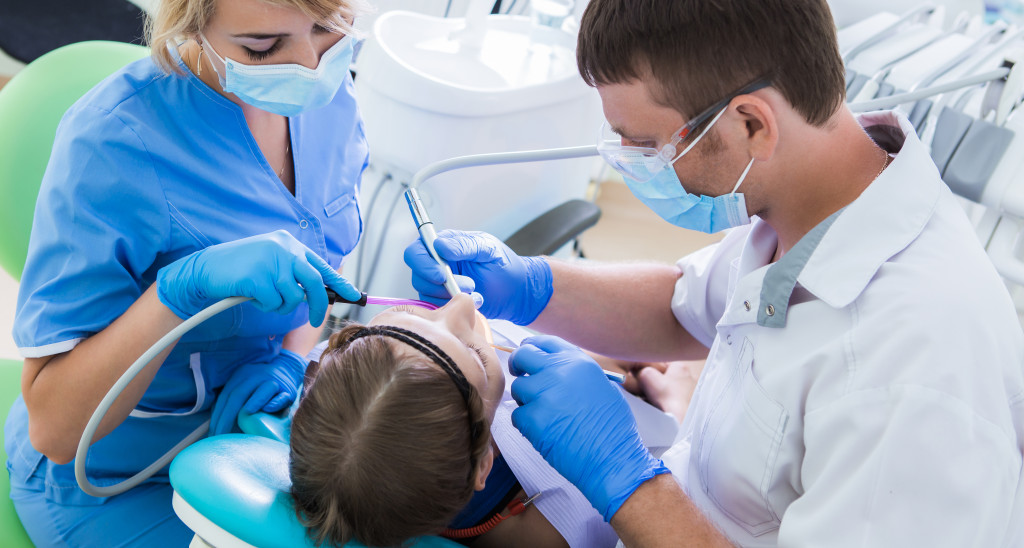- Consult with a qualified specialist before undergoing surgery to discuss expectations and address questions or concerns.
- Understand the risks, benefits, and costs associated with the procedure to make an informed decision.
- Consider the recovery period needed after surgery and any potential side effects or adverse reactions.
- Research your options beforehand to ensure a smooth and successful surgery and educate yourself on the topic.
Undergoing oral surgery can be a daunting task for any patient. It is essential to consider all the potential risks and benefits before deciding whether to proceed with the procedure. By researching these topics thoroughly beforehand and understanding what your options are, you can ensure that you make an informed decision regarding your oral surgery.
A consultation with a qualified oral surgeon

Consulting with a qualified oral surgeon is necessary if one is considering oral surgery. This consultation sets both the patient and the medical practitioner on the same page, allowing them to discuss the procedure’s expectations so that real results are achieved.
It also allows the patient to ask questions or voice any concerns about their condition before committing to dental work. Moreover, it will enable the oral surgeon to better understand the patient’s treatment plan, overall health, and general state. In turn, this facilitates accurate diagnosis and a practical course of treatment for any dental issue that may arise.
Surgery specifics
Here are some things you need to know before undergoing oral surgery:
Potential risks
Considering potential risks associated with oral surgery beforehand is critically important. Oral surgery often comes with risks, so it’s a great idea to think it through carefully before making any decisions. Any knowledgeable dentist should be able to provide you with more information, especially if you have questions or concerns about the procedure and its possible outcomes.
Educating yourself can reduce stress and ensure confidence in your decision. Since different people respond differently to medical treatments, even seemingly minor risks may become more significant for specific individuals – so talk to an expert about any concerns you may have.
Benefits of undergoing the procedure
Considering the benefits of undergoing oral surgery is an essential step in any medical procedure. Making informed decisions about treatment led by a dentist or an oral surgeon often requires scrutiny and knowledge of potential side effects that might occur. While there are advantages to a particular type of dental treatment, evaluating each risk factor involved is prudent before making an informed decision.
Discussing these considerations with a dental health professional who is experienced in treatments and can explain the expected benefits versus side effects associated with the treatment you are considering is essential. Doing so ensures that you go through the process with full knowledge of what risks may be involved and what result you want from the procedure.
The cost and payment options

Cost is often a significant concern for patients regarding medical procedures, especially oral surgery. It is, therefore, essential that you consider the payment options as well as estimated costs before undergoing any type of procedure. This ensures that you clearly understand how much of the cost will be covered by insurance and what payment type(s) are accepted.
Knowing these details can dramatically reduce financial stress before your surgery. Additionally, alternative treatments may be available to better fit your budget, so researching your options and getting accurate cost estimates from the office beforehand should always be considered.
Recovery time is needed after surgery.
Properly considering the recovery time needed after oral surgery is of utmost importance. When someone has an operation on their mouth, they often need to take it easy and allow the body to heal before participating in strenuous activities that might cause further complications. This is because the muscles and skin around the affected area can become easily irritated and inflamed if used too soon after a procedure.
Moreover, this prolonged healing period must include adhering to all pertinent doctors’ orders regarding topics such as pain medications or abstaining from certain foods. A smart safety approach regarding recovery periods following oral surgery is critical to prevent irreversible consequences.
Any potential side effects or adverse reactions
Before undergoing any invasive oral surgery procedures like braces or dental implants, it is essential to consult with your dentist and evaluate any potential side effects and adverse reactions that could occur. By doing so, you can make a more informed decision about the surgery and ensure that the procedure is safe for you.
Not only will a proper evaluation of these potential issues allow you to avoid any severe risks associated with the surgery, but it will also give you an idea of how much time and money are needed to receive proper medical attention following the procedure should an undesired outcome take place. Taking this extra step before surgery ultimately helps protect your physical health and financial well-being in the long run.
These are just a few considerations to keep in mind when contemplating oral surgery. Though the process may seem intimidating, by taking the proper steps and researching your options, you can ensure that any decision you make is informed. With this kind of knowledge at hand, the path towards optimal dental health will be much easier to navigate.




